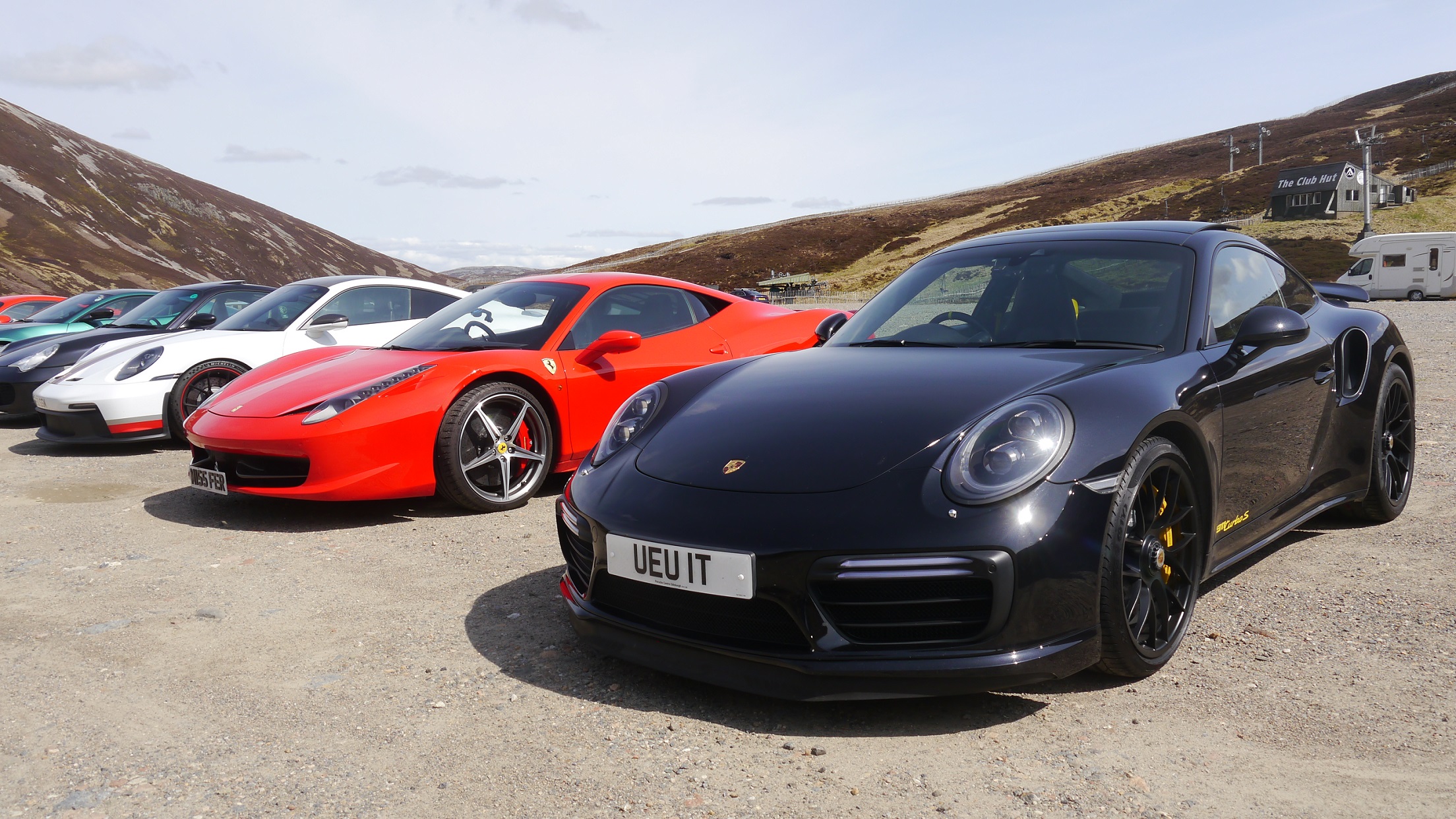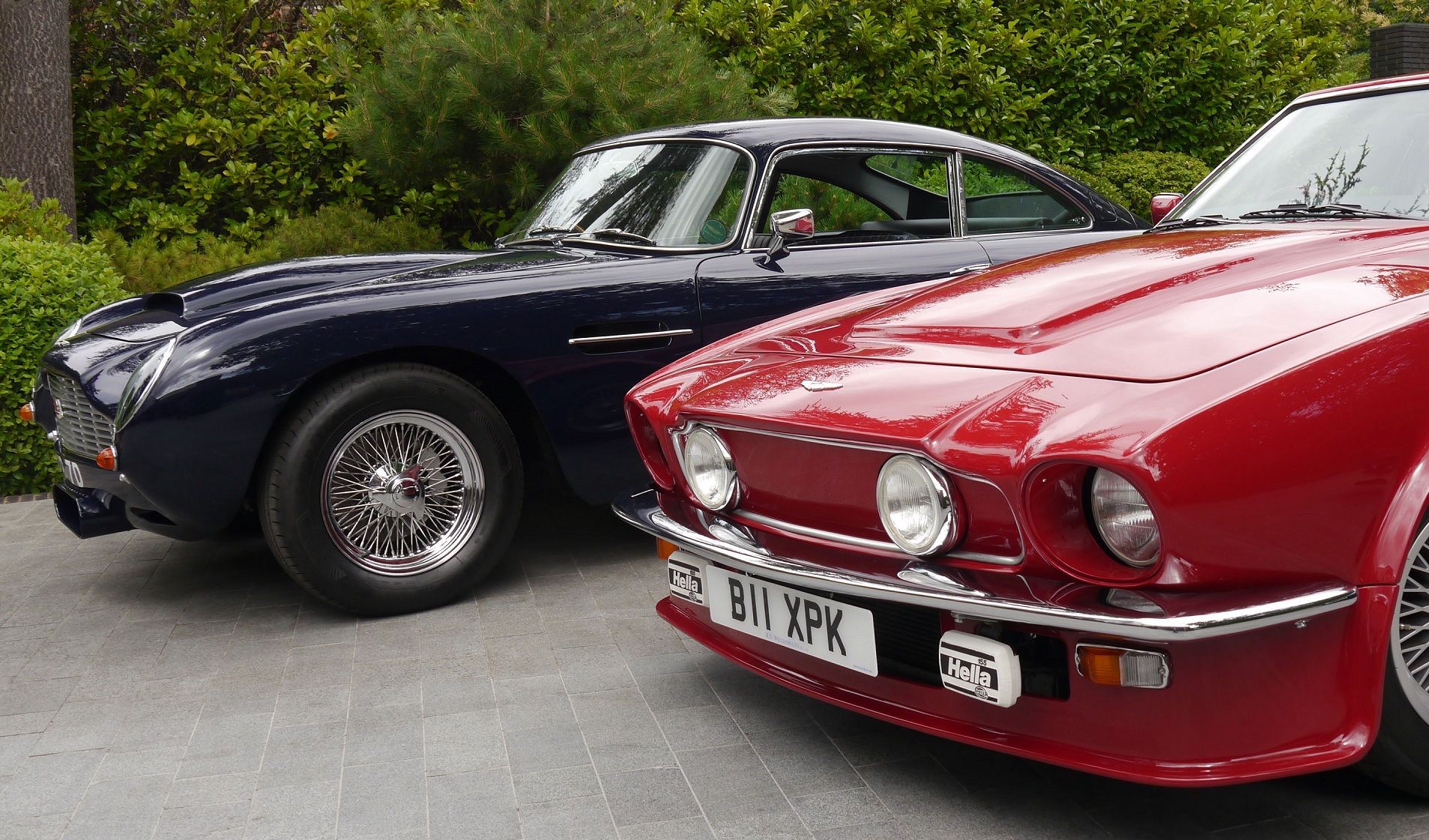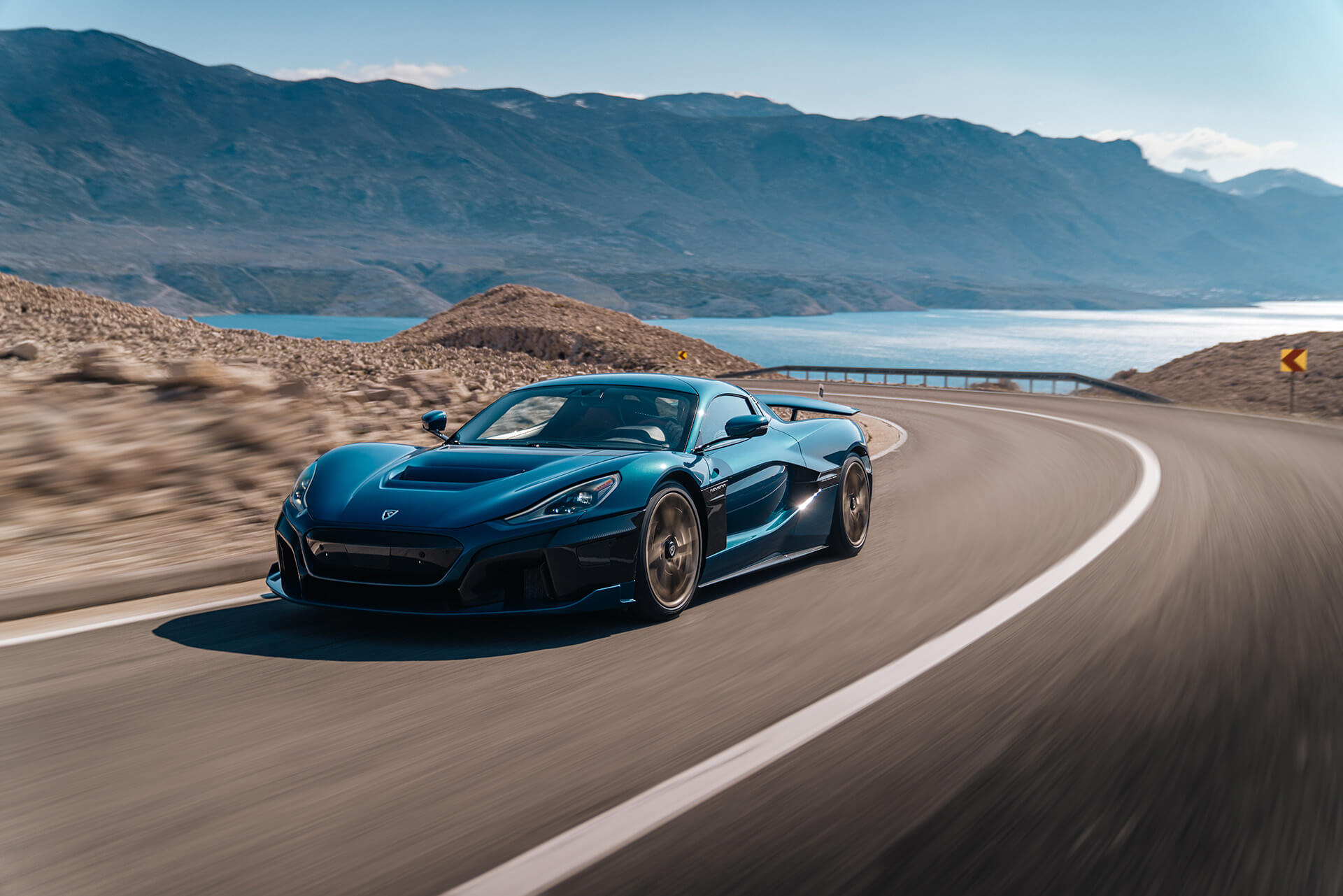Electric dreams
Restrictions on the use of conventionally powered cars in many parts of the world are getting stricter by the day, so what does the future hold for classic and supercars? Andrew Shirley takes a road trip to find out

When you’re stuck behind a column of dawdling day trippers ogling the breathtaking scenery on the winding road heading north towards Balmoral, there’s not much you can do. It does help, though, if you are in a Porsche 911 Turbo S, the marque’s fastest non-track-focused petrol-engined car.
The overtaking opportunity when it comes looks tight, but the acceleration of this twin turbo-ed beast – 0 to 60 in little over two seconds – means we are safely past the tourists in the blink of an eye.
My journey through the Scottish Highlands marks the beginning of a quest to find out if electric vehicles (EVs) can match the visceral thrill provided by internal combustion-engined (ICE) classics and supercars. I’m riding shotgun with members of car club Autobahn Scotland, who between them boast a dazzling array of scorchingly fast vehicles...

These include the electric Taycan Turbo S owned by Andy Simpson, who, besides supplying the rare whisky data for the Knight Frank Luxury Investment Index, is a bit of a Porsche fanatic. Andy knows I’m sceptical about the two-tonne-plus, battery-laden Taycan and has invited me to experience it for myself.
The 911 Turbo S lays down a strong benchmark. It’s certainly the fastest car I’ve ever been in, but for something with so much horsepower, it seems too quiet and civilised.
There’s no danger of not feeling engaged in my next ride, a Ferrari 458 Italia. First built in 2009, this is clearly a car that, while still good for 200 mph, is technologically in a different era to the 911.
Last up is the Taycan. The acceleration can rearrange your insides – it’s slightly quicker from a standing start than even the 911 – and it feels nimble despite the weight of those batteries. But aside from a slight whine from the motors, it’s virtually silent, meaning somehow, despite the performance, it doesn’t feel quite like a sportscar.
An adult can even fit in the back without performing some kind of human origami. It’s a very, very fast luxury family cruiser, not to mention a tax-efficient company car. Throughout the trip, I’ve been trying to gauge the sentiment of the Autobahn members towards EVs. From a community of petrolheads I was expecting a bit more snark, but nobody seems to have anything against them per se.
The criticisms are more practical: the range isn’t great, the UK’s charging infrastructure isn’t good enough.
Are EVs really as green as their manufacturers would have us believe, and will e-fuels and hydrogen ultimately overtake electricity as the eco-friendly power source of choice?
To follow the rest of Andrew’s quest, which includes a unique Aston Martin DB5 and the brutal Le Mans-winning Ford GT40, download the full article here.

The road ahead: navigating the big EV issues
Here, Andrew Shirley talks to classic car experts and some of the most famous racing names in motor racing to find out what they think about the future of EVs
Is there a future for classic cars in an EV world, and will they retain their value?
This is the big question for collectors. Allan McNish, champion racing driver and a non-executive director at Tertre Rouge, a specialist classic car and motorcycle investment business, thinks so. “Does a car need to be driven to have real value? Very often, the most valuable cars are not driven today but stored in perfect condition, with their exclusivity and history being the key to their value.
“But as conventional fuel is phased out, sustainable fuels are being phased in. This future suggests we will continue to be able to enjoy beautiful classic cars as engineering masterpieces as well as the pleasure of driving them.”
“One of the foremost pre-war Bentley specialists and racers is now using e-fuel in his cars with no ill effects, so that’s encouraging,” agrees John Mayhead, Editor of the Hagerty Price Guide UK. Dietrich Hatlapa, of analyst HAGI, is also feeling positive. “For the moment, only new cars that use fossil fuels will be phased out. Old cars will continue with existing fuels or e-fuels so there is no threat to values.”
“I hope we can keep the door open on this so real classic car enthusiasts can continue taking their cars out occasionally. I'm not too concerned about values as the supply side of these pieces is fixed and normally very limited,” says Formula 1 champion Mika Häkkinen, another non-exec at Tertre Rouge.
Will EVs ever become collectable?
“Some rare and performance EVs already are – the Tesla Roadster, BMW I8 or Porsche 918 hybrid, for example,” says Dietrich. “The lower their mileage, the better. An uncertainty factor though is the life cycle of batteries and the associated replacement cost.” John adds: “We have seen the values of very early Teslas rise, even things like Nissan Leaf.”
“I think in about 20 years´ time, there will start to be a classic electric car market, such as owning the first of the EV hypercars we will see in the next five years, but it will likely be a different generation of owners,” says Allan. “Some people collect stamps, so there is no reason that some EVs won´t be collectibles in the future,” muses Mika.
Should I electrify my classic car, and will it affect its value?
“It depends on the car,” says John. “For some, it may have a positive effect. A Porsche 911 reimagined by Singer is worth more than a standard 964. The whole point of old Bentleys and Rolls Royces is to be smooth, quiet, powerful and beautiful - an electric engine ticks all those boxes.”
“If a model has been produced in large numbers, it can be fun and lucrative to convert a few,” says Dietrich. “But generally, their value as a collector´s item will be negatively affected depending on the degree of changes made and their reversibility.”
“I don't see why one would do that. They represent an era, and like other rare collectibles and art, we celebrate their originality,” says David Coulthard, Formula 1 champion and Tertre Rouge board member, emphatically.






